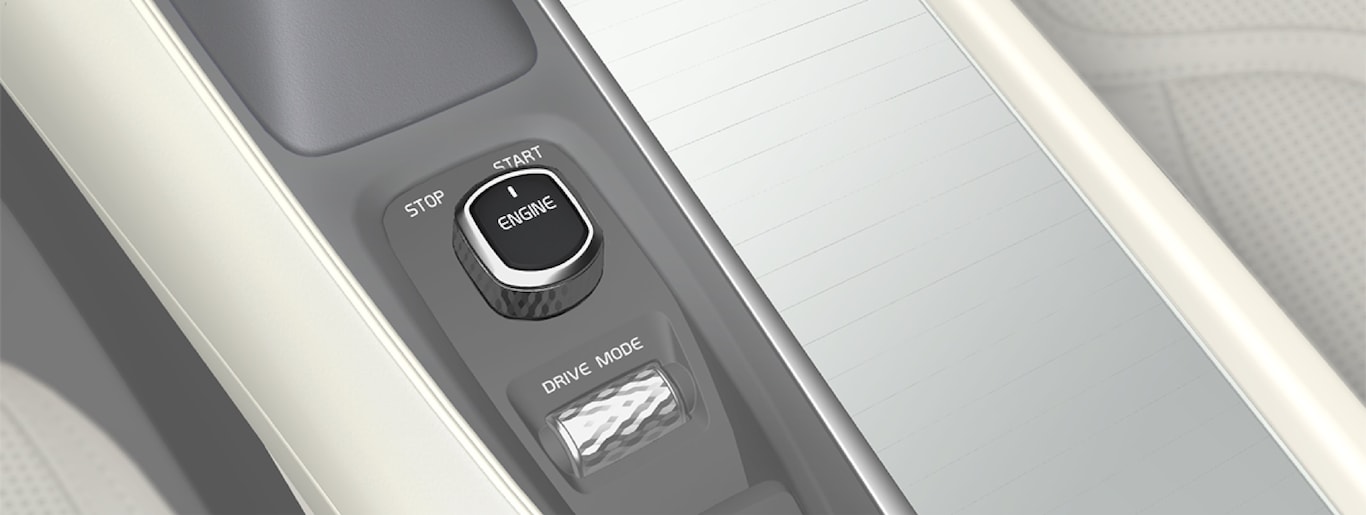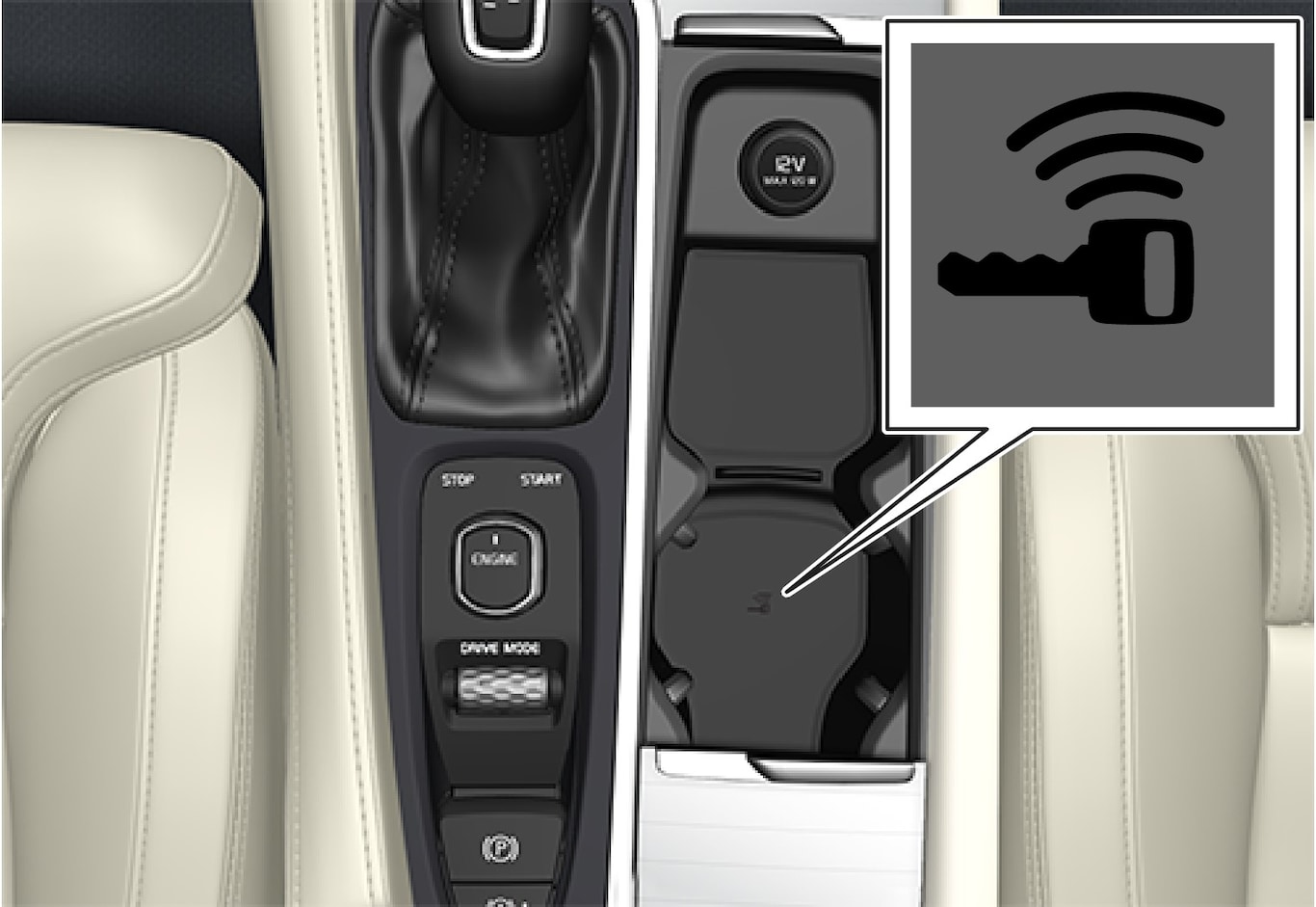
The remote control key is not physically used when starting the car since the car is equipped with support for keyless starting (Passive Start).
To start the car:
The remote control key must be inside the car. For cars with Passive Start, the key needs to be located in the front part of the passenger compartment. With the keyless locking/unlocking option (Passive Entry*), the key can be anywhere in the car.
For cars with automatic gear changing, make sure that gear position P or N is selected. For cars with manual gear changing, make sure that the gear lever is in neutral position and that either the clutch pedal or the brake pedal is depressed.
Depress the brake pedal fully1.
Turn the start knob to START and release it. The control automatically returns to its starting position.
Note
For diesel-engined cars, there may be a slight delay before starting is initiated.
When the engine is started the starter motor works until the engine is started or until its overheating protection triggers.

If the message Car key not found is shown in the driver display when starting, place the remote control key on the backup reader in the cup holder. Then try to start again.
Note
When the remote control key is placed in the cup holder, make sure that no other car keys, metal objects or electronic apparatus (e.g. mobile phones, tablets, laptops or chargers) are in the cup holder. Several car keys close to each other in the cup holder can cause interference with each other.
Important
If the engine fails to start after 3 attempts - wait for 3 minutes before making a further attempt. Starting capacity increases if the battery is allowed to recover.
Warning
Never remove the remote control key from the car while driving or during towing.
Warning
Always take the remote control key out from the car when leaving the car and make sure the car's electrical system is in ignition position 0 - especially if there are children in the car.
Note
The idling speed can be noticeably higher than normal for certain engine types during cold starting. This is done in order that the emissions system can reach normal operating temperature as quickly as possible, which minimises exhaust emissions and protects the environment.